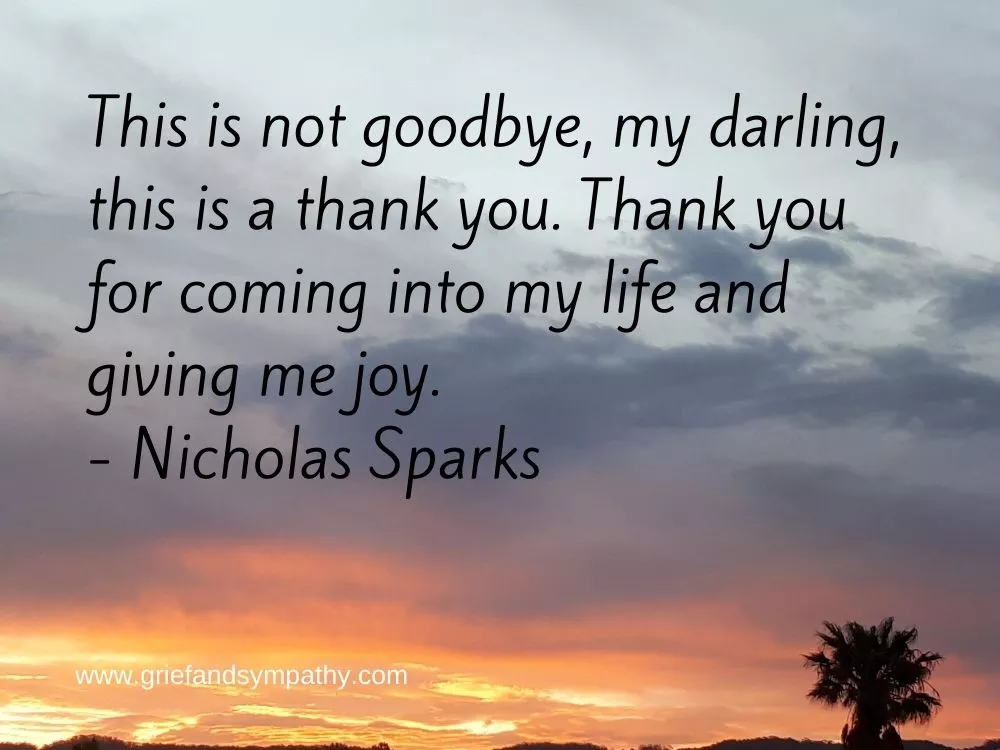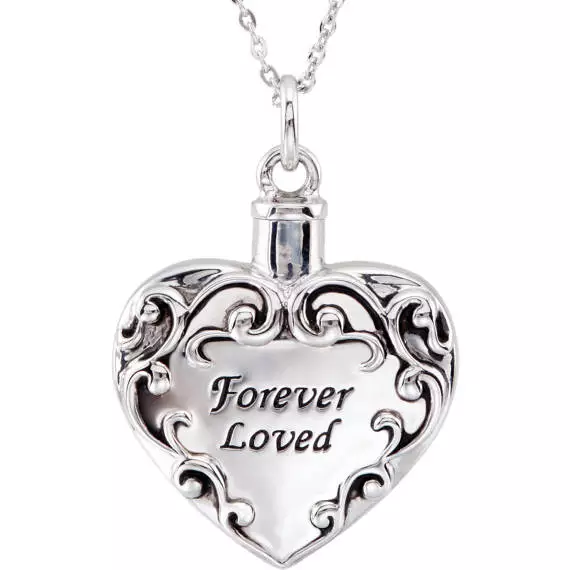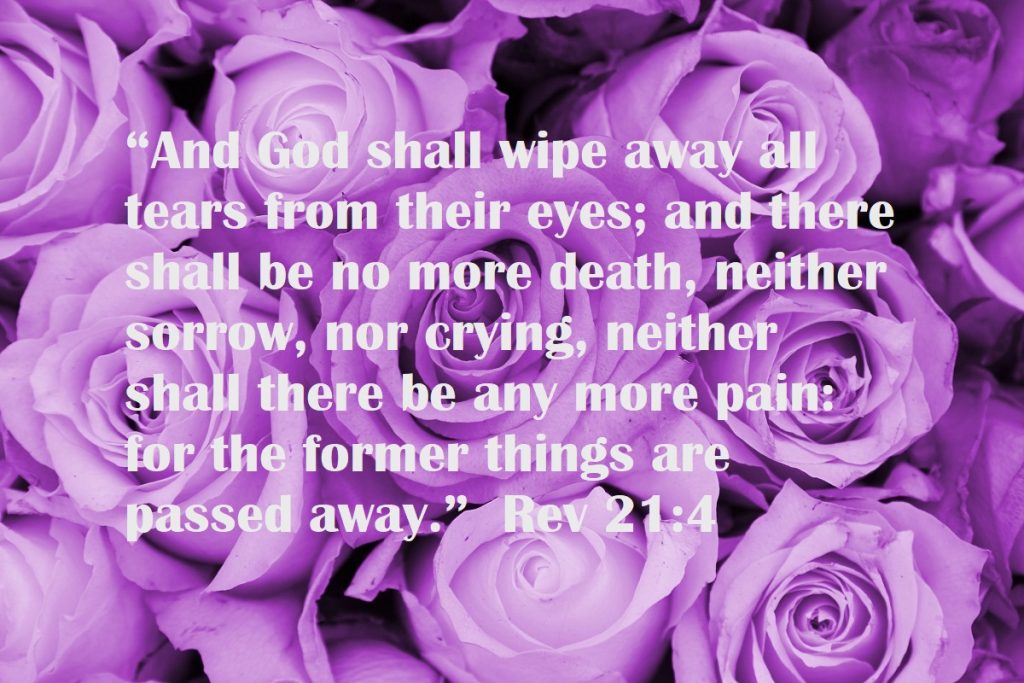How To Write a Funeral Speech With Eulogy Examples
Looking for the right words to say? We’ve compiled the most heartfelt, personal funeral speech examples to help you honor your loved one’s memory.

Standing in a room full of people to deliver a eulogy for a loved one is one of life's most challenging tasks. The weight of finding the right words to honor a life well-lived can be overwhelming. It’s nerve-wracking — but it’s also an honor.
You want to do your best to get it right. And we’re here to help.
This article contains practical advice and inspiration (plus, some funeral speech examples) to help you write a heartfelt and memorable eulogy.
Whether you're a skilled orator or someone who struggles with public speaking, these steps will guide you through the process of writing a funeral speech for a family member or a friend — something that truly celebrates their life.

Step-by-Step Guide to Writing a Funeral Speech
From gathering memories and structuring your speech to writing with authenticity and emotion, here are the steps you can take to find the support you need to write a funeral speech for family members.
Step 1: Gather information and inspiration
Start by gathering memories, stories, and anecdotes. Make notes of what you feel about them. Reach out to family members and close friends to collect their memories and stories. Ask them about the moments that stood out, the qualities they admired, and the experiences that made an impact.
These personal insights will provide the foundation for your eulogy, ensuring that it reflects the individuality and spirit of the person you’re honoring.
Additionally, spend time reviewing old photos, letters, and personal belongings. These items can stir memories and bring to mind moments you might want to include in your speech.
Photos can remind you of significant events, travels, and achievements, while letters and other mementos might reveal your loved one’s thoughts, values, or personality in ways that words alone cannot.
This process will help gather content and provide a comforting way to connect with your memories during this difficult time.
Step 2: Structure the eulogy
Once you’ve gathered your thoughts and stories, the next step is to structure the eulogy in a way that flows logically and emotionally. A well-organized speech helps to convey your message clearly and keeps the audience engaged.
Here are some typical components of a eulogy:
- Introduction: Begin with a brief introduction that acknowledges the gathering and sets the tone for the eulogy. You might start by introducing yourself, especially if not everyone in the audience knows you. Then, briefly mention who the departed was to you (a parent, sibling, or friend) and touch on their importance in your life. You could include a quote, a poem, or a reflection that resonates with the person’s life.
- Main body: This is the heart of your eulogy, where you share the memories, stories, and qualities that defined your loved one. Consider organizing the main body thematically or chronologically. For example, you could focus on different aspects of their life — such as their childhood, career, hobbies, and relationships — or you might choose to highlight their character traits , like kindness, humor, or perseverance. Use the anecdotes and stories you’ve gathered to illustrate these points, making sure to balance lighter moments with more serious reflections.
- Conclusion: Bring your thoughts together with a final reflection on your loved one’s life . This could be a summary of the impact they had on those around them or a message of hope and remembrance for the future. You might also close with a quote, a final wish, or a call to action, encouraging those present to honor the deceased’s memory in their own lives.
Organizing your thoughts (logically and emotionally) is crucial to delivering a eulogy that feels cohesive and heartfelt.
Start by listing the key points you want to cover, such as specific memories, qualities, and messages. Then, arrange these points in a way that feels natural and emotionally resonant.
For example, you might start with lighter, more joyful memories and gradually move toward more profound reflections, allowing the audience to journey with you through a range of emotions.
Remember, the goal is not to create a perfect speech but to convey your genuine feelings and memories in a way that honors your loved one. Take the time to structure your eulogy thoughtfully.
Step 3: Personalize the eulogy
This step makes your speech really resonate with those in attendance. Personalization honors the departed and provides comfort and connection to those who are grieving. Here’s how you can achieve that:
- Highlight achievements, hobbies, and passions: Reflect on the major achievements in your loved one’s life. This could include career milestones, personal accomplishments, or contributions to their community. Discussing these achievements shows how they made a difference in the world and the lives of those around them. For example, if your loved one was passionate about volunteering, you could share stories of the impact they had on the lives they touched through their service. If they were an avid gardener, you might talk about how their love for plants brought beauty into the lives of friends and family, perhaps even sharing a story about a particularly beloved garden or plant they tended to.
- Use personal anecdotes to illustrate character and impact: Personal anecdotes bring to life the character and impact of the person being remembered. These stories can be humorous, touching, or a mix of both. For example, you might share a story about a time when their sense of humor lightened a difficult situation or how their kindness helped a friend through a tough time. These anecdotes help highlight their personality and remind everyone present of the moments they shared.
- Respect and integrate cultural traditions: Consider and respect any cultural or religious traditions that were significant to your loved one. This might involve incorporating specific rituals, prayers, or symbols into the eulogy or the service itself. For instance, in some cultures, it’s customary to read a particular prayer or poem, light candles, or play a certain type of music. If your loved one was deeply connected to their cultural heritage, integrate these elements to make the eulogy more meaningful.
- Quotes, poetry, or song lyrics: Do this to add depth and resonance to your eulogy. Choose words that reflect the spirit of your loved one or that express sentiments you find difficult to put into your own words. For example, you might include a line from a favorite poem that they loved or that perfectly captures their outlook on life. A short, meaningful quote can serve as a powerful conclusion to a section of your eulogy , helping to tie together the memories and themes you’ve discussed.
Step 4: Write with emotion and authenticity
Writing a eulogy is not just about recounting facts; it’s about conveying emotions and memories associated with your loved one. Here are some points to keep in mind:
- A well-rounded eulogy often incorporates a mix of emotions — there’s room for humor, sentiment, and solemn reflection . Humor can provide relief in a heavy moment and remind everyone of the joy the person brought into their lives. For example, sharing a funny anecdote can lighten the mood and help the audience connect with the memories in a positive way. However, it’s important to ensure that the humor is respectful and appropriate to the setting.
- Emotion and solemnity should also be present, as these reflect the seriousness of the occasion and the depth of your feelings. Share moments of tenderness, gratitude, and love, allowing yourself to be vulnerable. The audience will connect with your sincerity, and it will help them process their own emotions as well.
- When writing your eulogy, speak from the heart. Use simple, direct language that conveys your feelings honestly. Instead of trying to impress with elaborate words, focus on being sincere and true to your emotions. Think about what you truly want to say to honor your loved one, and let that guide your words.
- Don’t be afraid to show your emotions as you write — tears and laughter are both part of the grieving process . If you’re comfortable, let these emotions flow into your writing. This authenticity will resonate with your audience and make your speech more impactful.
- It’s easy to fall into using clichés when writing a eulogy, but try to avoid them where possible. Phrases like “they’re in a better place” or “they’ll always be with us” can feel impersonal and overused. Instead, focus on what made your loved one unique. Highlight their quirks, their habits, the little things that defined them — these are what the audience will remember and cherish.
- Describe specific moments or traits that capture the individual’s essence. For example, rather than saying someone was kind, describe a time when they went out of their way to help someone else. These details bring the person to life in the minds of those listening and create a more personal and meaningful tribute.
Step 5: Craft a compelling opening and closing
Your opening should draw the audience in and make them feel connected from the start. You might begin with a powerful quote, a heartfelt memory, or a statement that captures your loved one’s spirit.
For example, you could start with, “When I think of [Name], I’m reminded of how they always had a way of making everyone in the room feel seen and valued.” This immediately sets a warm, reflective tone.
Another approach could be to acknowledge the difficulty of the moment while expressing gratitude for those who have come to honor the person who has passed away. This helps to unify the audience in shared purpose and emotion.
The closing of your eulogy is your final opportunity to leave the audience with something meaningful. You may end with a message of hope, a reflection on the person’s lasting impact, or a call to action — encouraging those present to carry forward the values and love that their loved one embodied.
For example, you could conclude with, “Let us remember [Name] not just today, but in the way we live our lives — in kindness, in joy, and love, just as they did.” This provides a sense of continuity and honors their legacy.
Alternatively, you might end with a simple, heartfelt goodbye or a moment of silence to allow everyone to reflect on their own memories.
Funeral Speech Examples for Various Relationships
We’ve put together a few funeral-speech examples that you could gain inspiration from when writing your own.
These examples are entirely fictional and have been created for illustrative purposes only. Our goal is to inspire and guide you as you write something of your own.
Any resemblance to real persons, living or deceased, is purely coincidental. Please use these examples as a starting point to craft a personalized and meaningful tribute that truly captures the essence of your loved one’s life and legacy.
1. Eulogy example for a parent
"My father, Robert 'Bob' Caldwell, was a man of few words. He taught me more through his quiet determination than any lecture ever could. As I stand here today, I'm reminded of the countless weekends we spent in his workshop, the smell of sawdust filling the air as he patiently guided my clumsy hands through each project.
“Dad never sought the spotlight, but his impact on our community was undeniable. For 30 years, he volunteered at the local animal shelter, arriving every Saturday morning without fail to walk the dogs no one else wanted to. I remember him coming home once, covered in mud and wearing the biggest grin, because he'd finally gotten 'Old Grumpy' (our notoriously difficult bulldog) to play fetch.
“My father's love for our family was as steady as his workshop routine. He may not have said 'I love you' often, but he showed it in a thousand little ways - from never missing a single one of my terrible middle school band concerts to learning to bake the world's most lopsided birthday cakes when Mom was ill.
“In his final days, as we sat together watching his beloved Red Sox, he turned to me and said, 'You know, kiddo, I think I did alright.' Dad, you did more than alright. You showed us all how to live with integrity, kindness, and purpose. Your legacy lives on in the values you instilled in us and the countless lives you touched.
“Rest easy, Dad. We'll take it from here."
2. Eulogy example for a spouse
"Maria Gonzalez was not just my wife. She was my North Star and the love of my life for 37 incredible years. When we met at that crowded college party, I never imagined that the woman who accidentally spilled her drink on me would become the person I couldn't imagine living without.
“Maria had this infectious laugh that could light up a room. I swear, half the neighborhood knew when she found something funny. Her passion for life was matched only by her compassion for others. As a pediatric nurse, she touched countless lives, and I lost count of the times former patients would stop us in the grocery store to thank her.
“She turned our house into a warm, welcoming haven, not just for our kids but for every stray friend or neighbor who needed a safe place. Her famous 'emergency enchiladas' became legendary; I think she fed most teenagers in town over the years.
“Maria faced her illness with the same grace and humor that she approached everything in life with. Even on her toughest days, she'd find a way to make her doctors laugh or comfort a fellow patient. In our last conversation, she made me promise to keep her garden alive and to never, ever attempt to cook her secret salsa recipe.
“My love, I will miss your terrible puns, your off-key singing in the shower, and the way you always knew exactly what I needed before I did. The world is dimmer without your light, but I promise to keep shining it forward in your memory.”
3. Eulogy example for a child
"Our sweet Lily was only with us for six short years, but in that time, she filled our lives with more joy, laughter, and love than we ever thought possible. From the moment she entered this world, with her bright eyes and curious fingers, Lily had a way of making everyone around her smile.
“Lily was our little adventurer. She approached life with an enthusiasm that was both inspiring and, frankly, a little exhausting on some days. I'll never forget the day we found her in the backyard, covered head to toe in mud, proudly showing off the 'fairy house' she'd built for the garden squirrels. Her imagination knew no bounds.
“Despite the challenges she faced with her health, Lily never lost her spark. Even during hospital stays, she'd insist on wearing her favorite tutu and tiara, declaring herself a princess. The nurses adored her, often sneaking in extra Jell-O cups just to see her face light up.
“In her final days, Lily taught us about courage and grace beyond her years. She worried more about comforting us than herself, always ready with a hug and her favorite phrase: ‘I’m okay, Mommy and Daddy.'
“Lily, my darling, you were right. You’re okay now. You’re better than okay; you showed us how to find joy in every moment and love in every challenge. We'll carry you with us always, our beautiful, brave little girl."
4. Eulogy example for a sibling
"My brother, Marcus, was more than just my older sibling — he was my protector, my confidant, and quite often, my partner in mischief. Growing up, there was no adventure too daring, no tree too high to climb, as long as Marcus was by my side.
“As we got older, our adventures changed, but our bond grew stronger. Marcus had this uncanny ability to show up exactly when you needed him. I can't count the number of times he appeared at my door with a pint of ice cream and a terrible movie, somehow knowing I'd had a rough day.
“Marcus lived life with a truly unmatched passion. He threw himself wholeheartedly into everything he did, whether it was mastering a new recipe in the kitchen (his paella was legendary), training for marathons, or fighting for causes he believed in. His work with local youth programs changed countless lives, and I know many of those kids saw in Marcus the same hero I always did.
“In our last conversation, Marcus made me promise to keep living life to the fullest and to keep seeking out new adventures. He said, 'Life's too short for regrets, sis. Make it count.' And that's exactly what I intend to do.
“As we remember Marcus today, I ask each of you to take a moment to appreciate the loved ones in your life. Let's honor Marcus's memory by cherishing every moment we have with those we care about, just as he did.
“Now, I invite you all to join me in a moment of silence. Let's reflect on the joy he brought to our lives and the lessons he taught us about living fully and loving deeply.
[Pause for a moment of silence]
“Thank you. Let's carry Marcus's spirit of adventure, laughter, and love with us always. May we all strive to 'make it count' in our own lives, just as he did in his."
5. Eulogy example for a friend
"I stand here today to celebrate the life of my dear friend, Jasmine Chen. A force of nature — brilliant, passionate, and fiercely loyal.
“Our friendship began 20 years ago in college, in the chemistry lab. She saved our experiment from disaster with quick thinking and a fire extinguisher, grinning, 'Well, that's one way to break the ice.'
“Jasmine approached everything with determination and humor. From groundbreaking research to organizing charity runs in ridiculous costumes, she poured her whole heart into it. She brought people together, creating family wherever she went.
“I'll miss our coffee dates when we'd solve the world's problems. Well, at least we’d leave feeling like we did. Jasmine made you feel heard and understood, even when challenging your perspective. Her curious mind always sought to understand more about the world and its people.
“Jasmine lived by her favorite Toni Morrison quote: 'If you have some power, then your job is to empower somebody else.' And she did. Her research will impact lives for years, but her greatest legacy is the love and inspiration she left in all of us.
“To my dear friend: Thank you for sharing your joy, support, and for showing us how to live with purpose. We'll honor you by embracing life with your enthusiasm. As you'd say, quoting your beloved David Bowie, 'I don't know where I'm going from here, but I promise it won't be boring.' Your impact will continue to ripple outwards, Jasmine. Rock on, my friend."
Meadow Gives More Opportunities to Honor a Loved One Your Way
We hope this helps you find the right words for the funeral speech, whether for a family member or a friend. We encourage you to use the eulogy examples as a starting point.
Here at Meadow , we specialize in compassionate and meaningful memorial planning.
Our comprehensive packages and support help you create a memorial service to reflect your loved one's spirit. We allow you to honor their memory on your terms because:
- We’re with you at every step. A brief call allows us to understand your needs and preferences. We'll then pair you with a professional memorial planner who will be your dedicated guide throughout the process.
- We focus on what matters. Our planner will handle all the logistics, from venue selection to vendor coordination, so you can focus on what matters most — spending time with loved ones.
- We take care of the details. Your dedicated planner will manage everything from food and flowers, sending invitations, booking catering, and managing your photo slideshow for the event.
- We customize. Tell us about your loved one's personality and interests. We create unique events to reflect their life for a truly personal celebration.
- We’re transparent. Our cremation package is $1,295 , and you can add on a memorial service package starting at $1,970 .
Let us help you create a beautiful and lasting tribute to your loved one.
Explore our personalized memorial services .
California Cremation and Funeral Services
Cremation package.
The Meadow Cremation package includes everything you need for a simple cremation.
Chapel Service
Everything you need for a traditional memorial service at one of our partner chapels.
Memorial Celebration
We'll help you create a memory that will last forever at a Beautiful Venue across Los Angeles County.
from $3,900

We are here for you
Our team is standing by 24/7 to guide you through this process.
Meadow (FD #2441)
- Dealing with Grief
- Online Grief Counseling
- Loss of Parents
- Loss of Spouse
- Loss of Siblings
- Loss of Children
- Children and Grief
- Relationship Grief
- Alzheimer's Grief
- Disenfranchised Grief
- Coping with Suicide
- Other Types of Grief
- Stories of Grief
- Frequently Asked Questions
- Grief Forum
- Planning a Funeral
Funeral Flowers
Funeral Poems
- Funeral Eulogies
- Funeral Caskets and Urns
- Sympathy Gifts
- Sympathy Baskets
- Sympathy Cards
- Words of Sympathy
- Memorial Jewelry
- Memorial Trees
- Pet Loss Grief
- Pet Memorial Jewelry
- Pet Sympathy Cards and Gifts
Online Counseling
Keepsake Store
Funeral Speech Examples for a Heartfelt Eulogy
We hope our funeral speech examples will inspire you to write a heartfelt eulogy to honour your loved one.
Delivering a funeral speech can be a daunting task. Quite apart from the challenge of speaking in front of people while in a highly charged emotional state, the task of actually writing the funeral speech can be overwhelming.
We are here to help you tackle this important job especially if you are in a state of shock from the grief of losing your loved one.
Further down the page there are links to example eulogies for all loved ones, friends or colleagues to give you inspiration.

Sales from links on this page result in a small commission to us, which enables us to continue to provide free content to help the grieving.
Guidelines for Writing Funeral Speeches:
First of all, we have put together the following simple guidelines to help you to think of things to say:
- Speak from the heart and say how you feel about the person
- Describe the person's qualities
- Talk about their career, jobs, hobbies and passions
- Talk about their relationships with family, friends and colleagues
- Mention things that you inherited or learned from them
- Perhaps mention some people who will be at the funeral
- Mention a couple of funny stories if appropriate
- Keep it real and don't be afraid of mentioning their less good points - you don't have to put them on a pedestal
- Thank people for coming to the funeral and for their support
Next, read the following two pages to give you step by step instructions on writing the eulogy and giving the speech:
'How to write a eulogy'
'How to give a eulogy'

Eulogy Sample Speeches
All the following links are sample eulogies written about real people. The ones for a father were written by myself and my brother when my Dad died. The one for a mother was written by my mother (founder of this website) about her own Mum.
Many of the others have been written for us by guest writers about their own lost loved ones.
We hope they will give you some ideas for writing your own moving tribute.

Eulogy Examples for a Father
Eulogy for a Father-in-Law
Eulogy for a Mother
Eulogy for a Mother by a Daughter
Eulogy for a Mother in Law
Eulogy for a Husband
Eulogy for a Wife
Eulogy for a Grandmother
Eulogy for a Grandfather
Eulogy for an Aunt
Eulogies for an Uncle
Two Eulogies for a Brother
One More Eulogy for a Brother
Eulogy for a Sister
Eulogy for a Best Friend
A Humorous Eulogy for a Friend
Eulogy for a Mentor
Eulogy for a Friend
Printable Eulogy Templates
Finally, to help you with your task of writing your funeral speech, we have some printable templates as a guide to write eulogies for adults and for children.
Print them out and then fill in the information and stories for your own departed loved one.
Free Eulogy Templates
Related Pages:
Planning a Funeral - Step by Step
Funeral Music
How to Deal with Grief
For USA Residents:
Please help our colleagues at Yeshiva University, USA by joining in their research study:
ARE YOU A CAREGIVER OR HAVE YOU RECENTLY LOST SOMEONE SIGNIFICANT?
#33769566.1 IRB Approved at the Study Level. 21 July 2022

We are seeking individuals who are caregiving for someone with a life-limiting illness and those who have experienced a significant loss to participate in a research study through Yeshiva University. The purpose of the study is to develop a questionnaire to identify those who may be in need of caregiver or grief support in order to ultimately improve family-centered care in hospitals and clinics.
For caregivers and bereaved individuals who would like to contribute to our understanding of caregiving and bereavement, this is a way to make a difference.
For USA Residents only. Click here to learn more.
- Grief and Sympathy Home
- Funeral Speeches and Eulogies
Where to get help:
Have you considered one-on-one online grief counseling .
Get Expert and Effective Help in the Comfort of Your Own Home
The following information about online counseling is sponsored by 'Betterhelp' but all the opinions are our own. To be upfront, we do receive a commission when you sign up with 'Betterhelp', but we have total faith in their expertise and would never recommend something we didn't completely approve.
Do you feel alone and sad with no support and no idea how to move forward? It can be tough when you are stuck in grief to find the motivation to get the most out of your precious life.
Online counseling can help by giving you that support so you don't feel so alone. You can have someone to talk to anytime you like, a kind and understanding person who will help you to find meaning in life again, to treasure the memories of your loved one without being overwhelmed and to enjoy your activities, family and friends again.
- Simply fill out the online questionnaire and you will be assigned the expert grief counselor most suitable for you. It only takes a few minutes and you don't even have to use your name.
- Pay an affordable FLAT FEE FOR UNLIMITED SESSIONS.
- Contact your counselor whenever you like by chat, messaging, video or phone.
- You can change counselor at any time if you wish.
- Click here to find out more and get started immediately .
- Or read more about how online counseling works here.

Sales from our pages result in a small commission to us which helps us to continue our work supporting the grieving.
Hypnosis for Grief - 10 Ways It Can Help You
Try a gentle hypnotherapy track to relax the mind. Learn how self-hypnosis can help you cope with grief at any time of the day or night.
Read more about it here.

For Remembrance:
Sales from our pages result in a small commission to us which helps us to continue our work supporting the grieving.

Memorial Jewelry to Honour a Loved One
Check out our lovely range of memorial jewelry for any lost loved one. Pendants, necklaces, rings or bracelets, we have them all in all kinds of styles. Choose for yourself or buy as a sympathy gift.
Click here to see our selection

Create an Online Memorial Website
Honour your loved one with their own memorial website. Share photos, videos, memories and more with your family and friends in a permanent online website. Free for basic plan with no ads.
Find out more here.
Find us here:
Sales made via this site will result in a small commission to us which enables us to continue our work helping those who are grieving. This does not affect the price you are charged and we will only ever recommend services and products in which we have complete faith.

Expert and Effective Online Counseling - Get Started Now
Self-help hypnosis downloads.

Try gentle therapy using relaxing hypnotherapy tracks in the privacy of your own home.
Click here to find out more.

Copyright Elizabeth Postl e RN, HV, FWT and Lesley Postle - GriefandSympathy.com 2012-2024
Any information provided on this website is general in nature and is not applicable to any specific person.
For specific advice, please consult a medical practitioner or qualified psychologist or counselor.
SiteMap About Us Contact Us
Affiliate Disclosure Privacy Policy
Powered by Solo Build It

- Premium Eulogy Writing Service
- Eulogy Guide
- Eulogy For a Husband Example
- Eulogy For a Wife Example
- Eulogy For a Mum Example
- Eulogy For a Dad Example
- Eulogy For a Grandfather Example
- Eulogy For a Friend Example
- Eulogy For a Brother Example
- Eulogy For a Sister Example
- Eulogy For a Son Example
- Eulogy For a Daughter Example
- Eulogy For a Work Colleague Example
- Eulogy For a Aunt Example
- Eulogy For a Uncle Example
- Eulogy For a Boyfriend Example
- Eulogy For a Girlfriend Example
- Cremation Services in USA
- Cremation Services in UK
Professional Eulogy Writing
Eulogy writing guide, funeral speeches for a work colleague, tribute speech to dad from daughter, funeral speech writing advice, what is a funeral speech called.
- September 19, 2023
Losing a loved one is a challenging and emotional experience. Amidst the heartache, we often find ourselves with the daunting task of commemorating the deceased in a way that captures their essence and the impact they made in our lives. One critical aspect of a funeral service is the speech given to honour the deceased – but what is this speech called? In this article, we will not only reveal the name of this speech but also delve into the importance of these words, provide guidelines on crafting a heartfelt eulogy, and introduce you to a valuable tool in creating an unforgettable tribute: Eulogy Assistant .
Are you struggling to write a meaningful eulogy during this difficult time? Our professional eulogy writing service can help you honour your loved one in less than 48 hours, with no additional stress. We help you preserve the legacy of a cherished life, in your time of grief. Find out more →
Table of Contents
A Funeral Speech by Any Other Name
What is the main purpose of a funeral speech, can anyone give a funeral speech, how long is a typical funeral speech, what elements make up a heartfelt funeral speech, how should one start a funeral speech, what is the difference between a eulogy and an obituary, is it appropriate to include humor in a funeral speech, can a funeral speech be given in the form of a poem or song, what should be avoided in a funeral speech, how can one maintain composure while delivering a funeral speech, is it necessary to rehearse a funeral speech, can children participate in giving a funeral speech, how can i personalize a funeral speech, can quotes or scriptures be included in a funeral speech, how do i conclude a funeral speech, can multiple people deliver a funeral speech, what kind of language should be used in a funeral speech, are visual aids appropriate to use during a funeral speech, how can a funeral speech provide comfort to the bereaved, the significance of a eulogy, crafting a heartfelt eulogy, what is a funeral speech called frequently asked questions, introducing eulogy assistant.
The funeral speech is commonly known as a eulogy. The term eulogy originates from the Greek word eulogia, which means praise or blessing. Essentially, a eulogy is a speech that pays tribute to and celebrates the life of the deceased. While eulogies are a prominent feature of funeral services, they can also be delivered at wakes, memorial services, or any other gathering where the loss of a loved one is commemorated.
Eulogies have a profound importance in paying homage to the deceased and providing comfort to the bereaved. They not only recount the life, achievements, and virtues of the departed but also serve as a vital connection between the past and the present, allowing friends and family to reflect upon their loved one's life. Eulogies afford the opportunity to share stories, memories, and emotions, enabling mourners to grieve collectively and find solace in the shared experience of loss.
Writing a eulogy can be an overwhelming task, particularly when grappling with the emotional weight of grief. Here are some guidelines to help you create a meaningful and sincere tribute:
Need a Eulogy? Get a Personalized Professional Eulogy Written For Your Loved One
Writing a eulogy for a loved one you have just lost, can be both challenging and painful. Alongside the pressure of delivering a meaningful tribute in front of other funeral guests.
Let our expert Funeral Speech Writers create a heartfelt & personalized eulogy, that captures the amazing life and memories of your loved one.
Learn more about our Professional Eulogy Writing Service today, and see how we can help you.
1. Find your focus: Determine the key message you want to convey about the deceased. This can be an overarching theme or a specific aspect of their personality, which you will build your eulogy around.
2. Gather information: Talk to friends and family, and gather their favourite memories and anecdotes about the deceased. Heartfelt, personal stories resonate profoundly with the audience and help paint a vivid picture of your loved one.
3. Organise your thoughts: Structure your eulogy with a clear beginning, middle, and end. Outline the key points you want to discuss and ensure a smooth and cohesive flow between these points.
4. Speak from the heart: The most touching eulogies come from an authentic place of love, grief, and remembrance. Don't be afraid to share your emotions - this vulnerability will help others connect with you and the person you are commemorating.
5. Practice makes perfect: Rehearse your eulogy several times, both in private and in front of a trusted friend or family member. Familiarising yourself with the content will help ease your nerves and ensure your delivery is impactful.
The primary purpose of a funeral speech, also known as a eulogy, is to pay tribute to the life of the deceased, acknowledging their virtues, accomplishments, and the positive impact they had on others. It serves to help mourners remember the individual fondly and find some closure.
Yes, anyone who feels a connection to the deceased can give a funeral speech. It is often delivered by family members, close friends, or religious leaders who were close to the deceased person.
A typical funeral speech lasts between 5 and 10 minutes. However, the duration might vary based on the specific circumstances and the preferences of the family.
A heartfelt funeral speech often includes fond memories, anecdotes, personal stories that portray the deceased's character, virtues, and achievements. It may also include readings or quotes that were significant to the deceased.
Starting a funeral speech with a personal anecdote or a favorite quote of the deceased can help to immediately engage the audience. It sets a tone of remembrance and personal connection.
A eulogy is a speech given during the funeral service to honor and commemorate the life of the deceased, while an obituary is a written notice of death, usually published in a newspaper, that gives an account of the person's life and information about the upcoming funeral or memorial service.
Yes, it is appropriate to include light humor in a funeral speech, as long as it is respectful and serves to celebrate the deceased's life or personality. It can also bring a moment of relief and smiles in a time of sorrow.
Absolutely, a funeral speech can be delivered through a poem or a song, especially if it resonates well with the deceased's personality or preferences. It can be a touching and heartfelt way to pay tribute.
Avoid bringing up controversial topics, negative anecdotes, or any information that might cause distress or discomfort to the family and mourners. The focus should be on celebrating the deceased's life and comforting the bereaved.
It can be challenging to maintain composure while delivering a funeral speech. Taking pauses, having a glass of water nearby, and having a written copy of the speech can help. It's also perfectly okay to show emotions during the speech; it shows your genuine connection and feelings towards the deceased.
While it is not strictly necessary, rehearsing a funeral speech can help you deliver a more composed and flowing tribute. It can also help in gauging the time taken and making necessary adjustments to fit within the preferred time frame.
Yes, children can participate in giving a funeral speech if they are willing and comfortable doing so. It can be a way for them to express their feelings and pay tribute in their unique way.
Personalizing a funeral speech can be done by including personal anecdotes, sharing fond memories, mentioning the deceased's hobbies or passions, and adding any personal interactions or experiences you had with them.
Yes, including quotes, scriptures, or literary excerpts that were meaningful to the deceased or that encapsulate their philosophy of life can add depth and resonance to a funeral speech.
Concluding a funeral speech with words of gratitude for the time and memories shared with the deceased, followed by a moment of silence or a prayer, can be a touching and respectful closure.
Yes, it is not uncommon for several people to share the responsibility of delivering a funeral speech. This can provide a more rounded tribute, showcasing different aspects of the deceased's life and personality.
The language used in a funeral speech should be respectful, compassionate, and inclusive. It should resonate with the audience, conveying the genuine feelings and memories of the deceased.
While not common, using visual aids such as photos or videos can be a touching addition to a funeral speech, helping to visually convey the life and memories of the deceased.
A funeral speech can provide comfort by sharing fond memories, highlighting the deceased's positive traits and accomplishments, and expressing the communal loss felt, which shows the bereaved that they are not alone in their grief.
If you're struggling with the task of writing a eulogy, help is at hand with the Eulogy Assistant . Our Professional Eulogy Writing Service will guide you through the process of crafting a heartfelt and personalised tribute. Offering invaluable prompts, suggestions, and guidance, our Eulogy Assistant takes the stress out of eulogy-writing, leaving you free to concentrate on honouring your loved one's memory.
In conclusion, a funeral speech is known as a eulogy, and it's an essential part of paying tribute to a loved one's life. The process of writing a eulogy can be challenging, but the Eulogy Assistant is here to make it easier. Let us help you create an unforgettable, heartfelt eulogy that allows you to share and honour the memory of your loved one in a way that brings comfort to others and yourself.
Looking For Examples? Here Are Some of The Best Eulogies
- Login / Register

How to Give a Meaningful Funeral Speech
- The Speaker Lab
- April 11, 2024
Table of Contents
Standing before friends and family to deliver a funeral speech (also known as a eulogy ) can be daunting. But don’t worry—we’re here to help you navigate this emotional task with poise and sincerity.
In this article, you’ll find practical advice for writing and delivering a eulogy that pays homage to your loved one’s unique journey through life. Learn how to use personal anecdotes to create an intimate connection with your audience, giving voice to shared grief. Whether you want to capture favorite memories or impart lessons taught by the departed, this guide will help you write and deliver a funeral speech that leaves a lasting impression.
Crafting a Heartfelt Funeral Speech
When you’re faced with the task of crafting a funeral speech, it can feel like trying to navigate through a thick fog of emotions. It’s not just about finding the right words; it’s also about painting a picture that captures the essence of your loved one’s life.
Speaking from the Heart
Tips for writing a heartfelt funeral speech often start with digging deep into personal reflections and fond memories. A eulogy is not merely an opportunity to bid farewell but also to celebrate and pay tribute to someone who made our lives richer.
The secret sauce? Sincerity. When you share stories—whether they are funny or poignant—you allow others at the memorial service to see facets of their dear friend or family member perhaps only you knew. This could be as simple as recalling mundane tasks that brought out their big smile, or sharing how this kind person taught valuable lessons simply by being themselves.

The Art of Eulogy Writing
Eulogy writing is more than stitching together notable life events; it’s creating narrative threads from various chapters of an entire life—a tapestry rich with color and texture uniquely theirs. Crafting these narratives means weaving favorite memories into something tangible people can hold onto long after they’ve left the funeral service behind.
You might worry about disrespectfulness when including humorous anecdotes within your short eulogy, but don’t let this deter you. While it can be tricky to pull off, a touch of humor can bring lightness amidst grief. If done thoughtfully, it won’t detract from the solemnity of the occasion.
Finding Inspiration
- A walk down memory lane : Spend time reflecting on moments shared; sometimes inspiration hides in unexpected corners like old photographs or familiar scents that remind you of memorable stories.
- Talk it out : Conversations with other close friends or family members often unearth amazing memories which capture multiple perspectives, making every minute spent recounting tales worth its weight in gold.
- Literary aid : When you’re finding it tough to put feelings into words, lean on free templates for guidance. They spark ideas and make sure nothing’s missed when emotions run high. For a helping hand, check out these free eulogy templates .
Learn How You Could Get Your First (Or Next) Paid Speaking Gig — Guaranteed
We receive thousands of applications every day, but we only work with the top 5% of speakers .
Book a FREE call with our team to get started — you’ll learn why the vast majority of our students start booking paid speaking gigs even before they finish our program .
Delivering Your Funeral Speech with Confidence
Standing before a group of mourners to deliver a funeral speech is no small feat. It’s about more than just reading words; it’s about conveying the essence of someone dear who has passed away, while managing your own emotions and connecting deeply with those around you.
Connecting with Your Audience
The key to delivering an impactful eulogy lies in forging a connection. Making eye contact can bridge the space between speaker and listener, drawing everyone closer into shared remembrance. It’s not just about looking up from your notes but really seeing the faces before you, recognizing their grief as part of yours.
Your body language speaks volumes too. Open gestures invite listeners into each fond memory or story told. A comforting smile during a lighter moment or respectfully bowed head at somber ones can enhance every word spoken, making sure they’re felt as much as heard.
Tackling Nervousness Head-On
Facing nervousness head-on allows you to channel that energy into your delivery rather than letting it undermine you. If public speaking makes you anxious, try grounding yourself beforehand: take deep breaths, feel your feet on solid ground, and remind yourself why you’re there.
To further calm nerves and steady focus during this emotional task, consider having a trusted friend or family member nearby. They could be someone who shares funny stories about the person’s life alongside you or simply provides silent support through their presence—a reassuring anchor amidst stormy seas of emotion.
The Role of Humor in Eulogies
When we bid farewell to a loved one, the funeral speech serves as a bridge between our grief and their legacy. It’s where humor can gently find its place, celebrating life amidst sorrow. The eulogy becomes not just an ode to the departed but also a canvas for painting smiles through tears.
Balancing Humor and Respect
Including funny stories within a eulogy is like walking a tightrope—you aim for laughter without losing footing on respect. Sharing humorous anecdotes does more than evoke chuckles; it captures moments when our dear friend or family member made us feel special with their unique qualities.
A well-crafted joke or amusing tale can demonstrate how laughter was part of the journey you shared with the dearly departed. It’s a testament to the lasting impact they had on lives around them. But always keep in mind that timing is key—funny should never overshadow fond memories at such sensitive times.
A Humorous Eulogy for a Friend
Making someone laugh during these emotional tasks may seem daunting, yet think about all those times spent together. Remembering happy times spent with your dearly departed brings comfort at memorial services. It helps everyone remember the person’s vibrancy.
To ensure your speech strikes this perfect balance, consider these steps:
- Reflect on memorable stories that show off their sense of humor—did they have any catchphrases or signature moves?
- Select tales appropriate for all attendees while ensuring they’re true reflections of who your loved one was throughout his entire life.
- Weave funny elements seamlessly into deeper narratives about lessons taught and amazing memories created over time.
Impact of Laughter in Grieving Process
Humor has healing powers—it’s scientifically proven to relieve stress even amid profound loss. As people gather to mourn at funeral services, sharing funny stories can serve as a brief respite from grief.
Personalizing Your Funeral Speech
Crafting a funeral speech that’s as unique as your loved one was isn’t just about paying tribute. It’s about capturing their essence and sharing it with others who feel the loss deeply.
Incorporating Unique Qualities into a Eulogy
The heart of personalization lies in those quirks and characteristics that made your dear friend or family member truly themselves. To write a eulogy that reflects this individuality, think beyond dates and milestones. Remember how they made mundane tasks laughable or turned ordinary days into adventures? Start by jotting down these little things—their big smile, how they could make anyone feel special, or even their notorious love for burnt toast.
A memorable story can sometimes say more than an entire list of accomplishments. Did you spend time together working on cars every weekend? Or maybe there was that unforgettable trip where everything went wrong but somehow felt so right? These stories allow for laughter through the tears and help celebrate life despite mourning.
Expressing Gratitude in Funeral Speeches
An emotional task indeed is expressing gratitude in your funeral speech. It goes beyond thanking your loved one for being part of your life. It delves into acknowledging the lasting impact they’ve had on you—how lessons taught have shaped decisions made years later or how shared experiences now serve as solid foundation stones upon which lives are built.
To express gratitude effectively in writing funeral speeches involves reflection on moments shared, from significant events like weddings to everyday occurrences like weekly phone calls catching up on each other’s news. Alternatively, it might involve simply appreciating all those times when support was given without needing to ask for help directly because they always knew when it was needed most.
Sharing Memorable Stories in Eulogies
Tapping into favorite memories often reveals much about someone’s character. Perhaps your loved one demonstrated generosity displayed through charity work or kindness through encounters with strangers. Anecdotes like these capture hearts better than mere recitation of facts.
As we carry on, the essence of their spirit guides our steps. We weave their legacy into our daily lives, finding solace in the love they shared and strength in the wisdom they imparted. Their laughter echoes in stories retold, ensuring that although they are no longer physically with us, their influence remains as a beacon for generations to come.
Find Out Exactly How Much You Could Make As a Paid Speaker
Use The Official Speaker Fee Calculator to tell you what you should charge for your first (or next) speaking gig — virtual or in-person!
FAQs on Giving a Funeral Speech
What do you say in a funeral speech.
Acknowledge the loss, share fond memories, celebrate their life, and offer comfort to fellow mourners.
How do you start a speech off at a funeral?
Begin with gratitude for gathering together, then ease into cherished stories about the departed.
What is the best opening for a eulogy?
An impactful opener might quote something meaningful or recount an anecdote that captures their spirit.
What is a speech about someone who passed away?
This type of speech pays tribute by reflecting on their life’s impact and expressing shared grief.
Embrace the challenge of a funeral speech. Remember, it’s your chance to honor a life well-lived. Reflect on fond memories and share them with heart. As you speak, consider using laughter to celebrate your loved one’s life and aim to capture their essence through personal anecdotes that resonate. Your words can comfort others by reminding them of what made your loved one unique.
Hone these tips into a heartfelt eulogy read at the final farewell, creating an enduring tribute that keeps their memory alive for all who gather.
- Last Updated: April 11, 2024

Explore Related Resources
Book a call with our team to get started — you’ll learn why the vast majority of our students start booking paid speaking gigs even before they finish our program .
If you’re ready to control your schedule, grow your income, and make an impact in the world – it’s time to take the first step. Book a FREE consulting call and let’s get you Booked and Paid to Speak ® .
About The Speaker Lab
We teach speakers how to consistently get booked and paid to speak. Since 2015, we’ve helped thousands of speakers find clarity, confidence, and a clear path to make an impact.
Get Started
Let's connect.
Copyright ©2023 The Speaker Lab. All rights reserved.

What to Say at a Funeral: Plan the Perfect Memorial Speech
Introduction
Speaking at a funeral is a profound honor, yet it comes with a weight of responsibility. It’s a moment to express grief, celebrate life, and offer comfort to others in mourning, all within a few heartfelt minutes.
In facing this daunting task, you might be wondering how to craft a speech that resonates deeply and brings solace. The core promise of this article is to guide you through creating a speech that not only honors the departed but also provides comfort to those left behind.
In this article, you will learn:
- The essential elements that make a funeral speech touching and memorable.
- Strategies to convey empathy and solace through your words.
- Practical tips for both preparing and delivering your speech with poise.
As we delve into the nuances of this sensitive topic, remember that your words have the power to heal and bring closure.
Understanding the Importance of a Funeral Speech
A funeral speech is more than just a mere formality; it’s a powerful vehicle for expressing collective grief and celebrating a unique life. This is a moment where words take on a profound significance, offering a semblance of comfort in the face of loss and helping those gathered to begin the healing process.
Funeral speeches serve as a bridge that connects the audience with the essence of the person who has passed. They remind us of the impact the deceased had on our lives, their values, and the memories we cherish. It’s an opportunity to articulate the unsaid, to give voice to our feelings, and to acknowledge our shared loss in a deeply personal yet universal way.
In crafting your speech, you’re not only paying tribute to the departed but also providing a crucial part of the journey towards closure for everyone present.
Key Elements to Include in a Funeral Speech
Creating a meaningful funeral speech involves weaving together several key elements that resonate with your audience and honor the memory of the departed. Here are some crucial components to consider:
- Personal Anecdotes and Memories: Share specific stories or memories that highlight the character and life of the deceased. These personal touches not only bring the speech to life but also help listeners connect and remember their loved ones in a more vivid way.
- Acknowledging the Grief: It’s important to recognize the pain and loss felt by those present. Empathize with the audience’s grief, showing that it’s okay to mourn and that they are not alone in their feelings.
- Celebrating Their Life: While a funeral is a time of mourning, it is also a time to celebrate the life that was lived. Highlight their achievements, passions, and the positive impact they had on others. This can provide a sense of joy and gratitude amidst the sorrow.
- Comforting Words: Offer words of comfort and hope. This could be through a favorite quote of the deceased, a poem, or simply your heartfelt wishes for peace and healing for those who are grieving.
Crafting the Right Tone: Balancing Grief and Celebration
Finding the right tone for a funeral speech is a delicate balance. It’s about respecting the solemnity of the occasion while also celebrating the life that was lived. Here’s how you can achieve this balance:
- Respectful and Reflective: Begin with a tone that acknowledges the loss and the pain it brings. It’s important to show respect for the gravity of the moment and the feelings of those in mourning.
- Uplifting and Hopeful: As you progress, gradually introduce more uplifting elements. Share stories or attributes of the deceased that brought joy and laughter. This shift helps to lighten the mood and reminds the audience of the cherished moments they had with their loved one.
- Inclusive and Unifying: Use language that brings people together. Phrases like “we remember,” “we cherish,” and “we celebrate” help to create a sense of community and shared experience, which is comforting in times of grief.
- Genuine and Personal: Above all, be sincere. Speak from the heart. Your genuine emotions and personal connection with the deceased will naturally guide the tone of your speech.
Structuring Your Funeral Speech: A Step-by-Step Guide
Creating a well-structured funeral speech can help convey your message clearly and effectively. Here’s a simple guide to help you structure your speech:
- Opening with Respect: Start your speech by acknowledging the solemnity of the occasion and the shared sense of loss. A respectful opening sets the appropriate tone for the rest of your speech.
- Introducing Yourself: Briefly introduce yourself and your relationship with the deceased. This helps the audience connect with you and understand your perspective.
- Sharing Memories: Transition to sharing personal anecdotes and memories of the deceased. These stories should reflect their character, life, and the impact they had on those around them.
- Acknowledging the Grief: It’s important to recognize and empathize with the collective grief of the audience. This shows that you share in their sorrow and are there to support each other.
- Celebrating the Life: Shift the focus to celebrating the life of the deceased. Highlight their achievements, passions, and the joy they brought into the lives of others.
- Concluding with Comfort and Hope: End your speech on a comforting note. Offer words of consolation, a hopeful message, or a meaningful quote that resonates with the sentiment of the day.
- A Moment of Reflection: Consider concluding with a moment of silence or a brief reflective pause, allowing the audience to privately cherish their memories of the departed.
We’re here to help you plan a funeral, virtual memorial or facilitate a livestreaming option.
We’ll guide you through the options.
We’ll answer your questions.
We’ll make suggestions based on your expectations.
We’ll never pressure you. Be comfortable in the decisions you make.
Practical Tips for Preparing Your Memorial Speech
Crafting a funeral speech can be challenging, but with the right approach and preparation, you can create a meaningful tribute. Here are some practical tips to help you prepare your speech:
- Gather Your Thoughts: Take time to reflect on your relationship with the deceased and the memories you shared. Jot down notes about significant moments, qualities you admired, and the impact they had on your life.
- Consult with Others: Don’t hesitate to reach out to friends and family of the deceased for additional insights or stories. This can help you paint a fuller picture of their life and character.
- Write and Organize Your Speech: Using the structure outlined earlier, start drafting your speech. Organize your thoughts and stories in a coherent manner, ensuring a natural flow from beginning to end.
- Rehearse Your Speech: Practice delivering your speech several times. This helps you become more familiar with the content and reduces the likelihood of being overly emotional on the day.
- Manage Your Emotions: It’s natural to feel emotional while delivering a funeral speech. If you feel overwhelmed, pause for a moment, take a deep breath, and continue when you’re ready. Remember, it’s okay to show emotion.
- Seek Feedback: If possible, rehearse in front of a trusted friend or family member and ask for their feedback. This can help you refine your speech and delivery.
- Prepare for the Setting: Familiarize yourself with the venue and any equipment you might need, such as a microphone or stand. This ensures you’re comfortable and prepared on the day of the funeral.
Tips for Speaking at a Virtual Memorial or Celebration of Life
Speaking at a virtual memorial requires some adjustments to the traditional approach.
Here are tips to ensure your speech is impactful, even in a digital format:
- Embrace the Technology: Familiarize yourself with the virtual platform being used. Test your microphone, camera, and internet connection in advance to avoid technical issues during the memorial.
- Create a Suitable Environment: Choose a quiet and well-lit space to deliver your speech. A simple, respectful background can help minimize distractions for the audience. Ensure good facial lighting, and no strong lights like windows or lamps directly behind you that will silhouette your face. Refer to our resource article for more about this topic.
- Engage the Virtual Audience: Make eye contact with the camera to create a sense of connection with your online audience. Speak clearly and at a measured pace to ensure your words are easily understood.
- Keep It Concise: Attention spans can be shorter in a virtual setting. Aim to deliver a concise yet meaningful speech, focusing on the most significant points and memories.
- Consider your Device: If using a mobile phone, tilt your phone to the horizontal position so that your video fills up the view. It is also recommended that you place your device so that it is at a 45-degree angle so the camera is directly facing you, not on an angle. The device should be on a tripod or firmly set on a table or desk to prevent shaking.
- Be Mindful of Time Zones: If attendees are joining from different time zones, be conscious of this in your speech timing and references to time-sensitive aspects like morning or evening.
- Provide Emotional Support Digitally: Since physical comfort is not possible, be extra expressive in your words and tone to convey empathy and support to the virtual attendees.
Do’s and Don’ts When Speaking at a Funeral
When delivering a funeral speech, it’s crucial to be mindful of certain do’s and don’ts to ensure your words are appropriate and comforting. Here are some guidelines to consider:
Do’s:
- Be Sincere: Speak from the heart. Genuine emotions and sincerity are always appreciated and can be very comforting.
- Keep It Appropriate: Share stories and anecdotes that are suitable for all attendees, including children and elders.
- Respect the Deceased’s Beliefs and Values: Ensure your speech aligns with the beliefs and values of the deceased, especially when touching on spiritual or religious themes.
- Offer Comfort: Use your words to offer solace to the bereaved, acknowledging their pain and offering hope and comfort.
Don’ts:
- Avoid Controversy: Stay away from topics that could be contentious or stir up negative emotions.
- Don’t Speak Too Long: Keep your speech concise. A lengthy speech can be hard for grieving attendees.
- Avoid Clichés: Try to avoid overused phrases or clichés. Personalized sentiments are more impactful.
- Don’t Forget to Prepare: Even if you’re comfortable speaking publicly, it’s important to prepare and practice your speech to ensure it conveys your message effectively.
Delivering a speech at a funeral is a significant and sensitive task. Through this article, we’ve explored the essential elements of a meaningful funeral speech, from crafting the right tone to structuring your message and preparing effectively, even in a virtual setting. We’ve also navigated the do’s and don’ts to ensure your words honor the deceased and bring comfort to the bereaved.
To recap, remember to:
- Incorporate personal memories and acknowledge the shared grief.
- Celebrate the life of the departed while offering words of solace.
- Prepare and practice your speech, respecting the setting, whether in-person or virtual.
As you embark on this heartfelt journey, remember that your speech is a powerful tool for healing and remembrance.

LIVE STREAMING, VIRTUAL MEMORIALS, VIDEO TRIBUTES – WORLDWIDE
Contact Us:
Privacy Policy
- Memorial Tribute Los Angeles
- Live Stream Funeral Services Los Angeles
- Live Stream Funeral Services New York
- Online & Live Streaming Funeral Services New York
- Zoom Funeral Seattle
- Live Stream Funeral Services Seattle
- Virtual Memorial Services Seattle
- Virtual Funeral Seattle
How to Articles
Search our Site

Funeral Speech Examples: Saying Goodbye With Love

A funeral speech or eulogy remembers a loved one by reminding other mourners of their good qualities and their impact on the lives of all in attendance. The content of a eulogy should be positive and uplifting as the speaker offers a final goodbye.
Although most of us will never be professionals at public speaking, many of us will someday have to speak to a relatively large group of people as we deliver a eulogy for a loved one. Knowing how to put together a touching eulogy speech that accurately encompasses the deceased’s life is an art form anyone can accomplish by following a few easy steps.
Table of Contents
What Should You Say At A Funeral When You Give The Eulogy?
When giving a funeral eulogy , one can approach it in many ways. Most eulogies happen at the funeral home, at a memorial service, during a church service, or at a celebration of life. The circumstance and location of the eulogy will sometimes help shape the type of speech you will give.

What Are Some Tips For Giving A Good Funeral Speech?
Preparing the eulogy involves gathering memories, writing them down, and practicing, especially if you feel you might become emotional.
There are seven steps to writing a good eulogy, or tribute speech to the deceased.
- Speak to friends and family members of the deceased. Even though you are a close family friend, many others who knew the deceased well might have stories and insights to contribute. Meet people for coffee or make some phone calls so you can gather stories to help you prepare your eulogy.
- Choose a theme and tone. Ask yourself what type of stories would best and most accurately depict your best friend and loved one. A funny eulogy would be perfect if they were the kind of person who always had people laughing. However, a more reserved memorial might be more appropriate for some people. The most important thing is that you speak from the heart.
- Consider the audience and location. If you are invited to give a eulogy as part of a church funeral service, the tone may be very different than if you are speaking at a celebration of life at a local bar.
- Introduce yourself as you speak. This will help everyone there to know why you are speaking by defining your relationship with the deceased and the family. Someone who has been lifelong friends with someone can speak to many aspects of their life, for example.
- Give some information about the deceased. Stories and memories can get the point across. Just be certain not to say anything that might be hurtful or embarrass the family. The eulogy is not the place for dirty laundry.
- Connect all of the information. Whether you are speaking in a theme or just bringing the stories full circle to explain what kind of person the deceased was, this is important to helping to wrap things up.
- Conclude the speech. You may end your eulogy simply by stating that you are honored to have been given the opportunity to speak or by adding a funeral quote about loss or grief.
What Words Can You Use In A Funeral Speech?
- Anecdotes from the person’s life are always fun because all of our lives are comprised of a million little things that have happened to us. These help paint a picture of who we are.
- Excerpts from books are often included as a means of making a particular point.
- Favorite memories should be shared as long as others assembled will find them relatable. Avoid stories that are too personal or where others will feel alienated when listening.
- Funny stories are excellent, especially if the deceased had an exceptional sense of humor.
- Poems are a beautiful way to remember a lost loved one, and they uniquely offer comfort.
- Quotes or song lyrics are a beautiful way to either start or end a eulogy. Another lovely idea is to end with a quote from a song and then have the music played. It allows for a touching transition.

What Are Some Good Topics To Talk About At A Funeral?
Reminiscing with the audience about the deceased can start out in many ways. Sometimes people start with the first time they met someone. Of course, there are many firsts in a person’s life. It could be the first time close friends went fishing together, and it ended in a tipped boat. Telling funny stories can help people cope during difficult times.
If you use the deceased person’s nickname , explain where it came from or why it stuck.
For someone loved by all, it may be appropriate to start the eulogy with “dear friends.” After all, what better way to pull in everyone listening than to acknowledge that the deceased was a friend to all?
Choosing memories or stories from when the deceased was a little girl or boy, to high school stories, to college to adulthood is an excellent way to provide a chronological life timeline. Some eulogy templates follow this method.
Other sample eulogies follow the three-story process. In this one, the person giving the eulogy chooses three stories that can be connected in some way to help illustrate a life well lived.

Short Eulogy Examples
Sometimes a short and sweet eulogy is best because you worry about keeping your composure when speaking. Also, many people give short stories or memories at some celebration of life events. Whatever the reason you are leaning toward a short eulogy speech, you can say a lot in very few words.
For a Friend: “Starting on that first day of high school when I could not get my locker open, and Amanda helped me, making us both late for class, I knew I had a friend for life. As I spoke to people about Amanda, I heard over and over that she gave often and selflessly. She will be terribly missed, and the world is a darker place without her.”
For an Older Brother: “My brother was my first best friend, and I simply can’t imagine life without him in it. He was my protector and my confidant. My fishing buddy and my personal cheerleader. He pushed me to be the best version of myself, and I am struggling to imagine a life without him in it. I love you, Matt.”

For a Co-Worker: “Having worked with Art for over 20 years, I can attest, he was a staunch perfectionist who helped us all to be better in the workplace and in life. Art led by example, worked hard to lead our team and also reminded us of the importance of keeping work and home life balance. Art was the best boss I have ever had, and although eventually, someone will have to sit at his desk, no one will ever take his place.”
What Are Some Examples Of Funeral Speeches?
When seeking eulogy examples, why not read (or watch) what are arguably five of the best eulogies ever?
- Barack Obama’s Eulogy Speech for John McCain
- Oprah Winfrey’s Eulogy for Rosa Parks
- Ronald Regan Gives Impromptu Eulogy for Space Shuttle Challenger
- Ted Kennedy’s Tribute Speech to his nephew John F Kennedy, Jr.
- Mickey Mantle’s Eulogy Delivered by Bob Costas
A former English teacher and currently an elementary principal in a rural school, Pam has honed her speaking skills in the classroom and before professional groups. Pam enjoys sharing her insights about public speaking almost as much as she enjoys running, which she does daily.
Recent Posts
Active Listening Absorbs The Whole Message, Not Just The Words
Active listening goes beyond hearing the words someone is saying to you and understanding the message they are conveying. Many only hear a small percentage of what is being said as they are...
Counteracting Fear Of Public Speaking With Coaching And Therapy
Nearly 75% of people experience the social phobia of fear of public speaking. The result may be nervousness before speaking or a full-blown panic attack. Practicing public speaking may lessen the...

- When someone dies
- At Hospital
- At Care Home
- Reported to a Coroner
- ‘Next steps’ – online guide
- Timeline after Death
- Finances & who to contact
- Managing the Estate
- Resources & Guides
- Online Guided processes
- Useful Links
- For Parents & Teachers
- Planning Ahead
- ‘Planning a Funeral’ – online guide
- Arranging a Funeral
- Pre-arranged Funerals
- Dealing with a Deceased’s Estate
- All Categories
- Grief & Bereavement Support
- Knowledge Base
- Funeral Service
How to write a Funeral speech
A funeral speech, also known as a eulogy, is a tribute or remembrance of the person who has passed away. It is typically given by a family member, close friend, or religious leader during the funeral or memorial service. The speech usually includes personal anecdotes, memories, and reflections on the life of the deceased. It is also common to include a message of comfort or hope for the bereaved. The length and style of the speech can vary depending on the occasion, but it is usually a heartfelt and personal tribute to the person who has died.
The purpose of a funeral speech is to celebrate the life of the deceased and to provide comfort and support to those who are grieving. It is also an opportunity for the speaker to express their feelings and say goodbye to the person who has passed away.
When giving a funeral speech, it is important to be prepared and to practice in advance. It is also important to be mindful of the audience and to consider their emotions and needs. It is also important to be mindful of the time and not to prolong the speech, allowing others to also speak and pay their respects.
Overall, a funeral speech is a way to pay tribute to the deceased and to provide comfort to those who are grieving. It is an important part of the funeral or memorial service and should be given with care and thoughtfulness.
•Begin by gathering information: Start by gathering information, such as their life story, accomplishments, and any memorable experiences or stories you might want to share. If you are a family member you may want to talk to others in the family to get their input and ideas.
•Consider the audience: Think about who will be attending the funeral or memorial service and what they might want to hear. What do you think would be most meaningful to them?
•Organize your thoughts: Once you have gathered all of your information, start organizing it into a coherent structure. You might want to consider including an introduction, a body with several main points, and a conclusion.
•Write a draft: Use your outline to write a draft of the eulogy. Keep in mind that you want to keep the tone respectful and appropriate for the occasion, and try to avoid using jargon or technical language that might be difficult for some people to understand.
•Edit and revise: Once you have a draft of the eulogy, take some time to edit and revise it. Consider getting feedback from others, to make sure that it is clear, concise, and well-written.
•Practice: It is a good idea to practice delivering the eulogy before the funeral or memorial service. This will help you feel more confident and comfortable when it is time to deliver it.
Writing and delivering a eulogy can be a challenging and emotional task, but it is also an opportunity to pay tribute to the life of the deceased and offer comfort and support. By following these steps and seeking support when needed, you can create a meaningful and memorable eulogy.

IMAGES
VIDEO
COMMENTS
The word eulogy, stemming from the Greek words 'eu' (meaning well) and 'logos' (meaning speech), is a tribute given to honor and commemorate the life of the deceased. Essentially, a eulogy serves to capture the essence of the person's life and contributions, showcasing their unique personality, memories, achievements, and impact on others, all ...
Step-by-Step Guide to Writing a Funeral Speech. From gathering memories and structuring your speech to writing with authenticity and emotion, here are the steps you can take to find the support you need to write a funeral speech for family members. Step 1: Gather information and inspiration. Start by gathering memories, stories, and anecdotes.
We hope our funeral speech examples will inspire you to write a heartfelt eulogy to honour your loved one. Delivering a funeral speech can be a daunting task. Quite apart from the challenge of speaking in front of people while in a highly charged emotional state, the task of actually writing the funeral speech can be overwhelming.
Funeral Speech Template. Wondering how to draft a funeral speech. Here's a template that you can follow. Keep your eulogy to around 300-500 words, which is around 3-5 minutes, and include personal details, stories, and memories throughout. If you're having trouble thinking of what to include, look at old photos, messages, or ask others for ...
A eulogy is a speech given during the funeral service to honor and commemorate the life of the deceased, while an obituary is a written notice of death, usually published in a newspaper, that gives an account of the person's life and information about the upcoming funeral or memorial service.
Whether you want to capture favorite memories or impart lessons taught by the departed, this guide will help you write and deliver a funeral speech that leaves a lasting impression. Crafting a Heartfelt Funeral Speech. When you're faced with the task of crafting a funeral speech, it can feel like trying to navigate through a thick fog of ...
A funeral speech is more than just a mere formality; it's a powerful vehicle for expressing collective grief and celebrating a unique life. This is a moment where words take on a profound significance, offering a semblance of comfort in the face of loss and helping those gathered to begin the healing process.
A funeral speech or eulogy remembers a loved one by reminding other mourners of their good qualities and their impact on the lives of all in attendance. The content of a eulogy should be positive and uplifting as the speaker offers a final goodbye. ... A former English teacher and currently an elementary principal in a rural school, Pam has ...
A funeral speech, also known as a eulogy, is a tribute or remembrance of the person who has passed away. It is typically given by a family member, close friend, or religious leader during the funeral or memorial service. The speech usually includes personal anecdotes, memories, and reflections on the life of the deceased. ...
Writing a eulogy is a traditional way to say goodbye when a loved one dies. Also known as a funeral speech, a eulogy is given at a funeral or memorial service by someone who was close to the deceased to commemorate their life. This could be a child, best friend, mother or father. There are no rules to what you can and can't say in a funeral ...